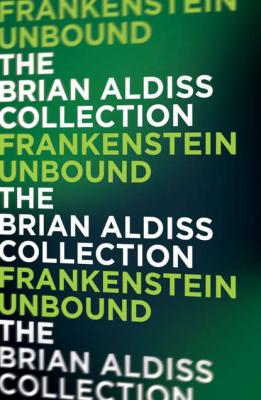Frankenstein Unbound. Brian Aldiss
Читать онлайн.| Название | Frankenstein Unbound |
|---|---|
| Автор произведения | Brian Aldiss |
| Жанр | Классическая проза |
| Серия | |
| Издательство | Классическая проза |
| Год выпуска | 0 |
| isbn | 9780007527465 |
BRIAN ALDISS
Frankenstein Unbound
For Bob and Kathy Morsberger, who appreciate
what Mary Shelley started
Alas, lost mortal! What with guests like these
Hast thou to do? I tremble for thy sake:
Why doth he gaze on thee, and thou on him?
Ah, he unveils his aspect: on his brow
The thunder-scars are graven: from his eye
Glares forth the immortality of hell …
Byron, Manfred
Make the beaten and the conquered pallid, with brows raised and knit together, and let the skin above the brows be all full of lines of pain; at the sides of the nose show the furrows going in an arch from the nostrils and ending where the eye begins, and show the dilation of the nostrils which is the cause of these lines; and let the teeth be parted after the manner of such as cry in lamentation.
Leonardo da Vinci, Treatise on Painting
Table of Contents
Part Two: The tape-journal of Joseph Bodenland
Introduction
I had no hesitation. I was obsessed with the matter of Mary Shelley’s Frankenstein: its tenderness and brutal remorse, and, beyond all that, its consideration of the difficulties of life that face us. So I got up one morning and eagerly began writing this novel.
In a sense, I was just doing a duty, for I felt that anyone interested in the macabre or the mystical should not fail to read Mary Shelley’s novel. I was determined that my answering novel should embody simple human joys and sorrows: the loss of a mother, the loss of direction, the loss of a feeling for common humanity. But for all that, it should just be a grand little story …
Mary Shelley wrote Frankenstein whilst still in her teens – a remarkable feat. We feel in her writing resonances of Caleb Williams, arguably the finest novel written by her father, the political philosopher William Godwin.
When I wrote my history of science fiction (Billion Year Spree), I claimed Frankenstein to be the first British work to which the label science fiction can be logically attached – particularly impressive in a field long dominated by men.
My sensibilities were already telling me that for science fiction to really find acknowledgement as literature it should not simply embrace science, but should attempt to involve that wider world in which we live and move and have our being.
So I embarked on this present book. It was first published by Jonathan Cape in 1973.
My main character, Joe Bodenland, is taken back in time from our present to a period early in the nineteenth century, where Mary Shelley is beginning to write her book in Switzerland. There Bodenland stands, in a
